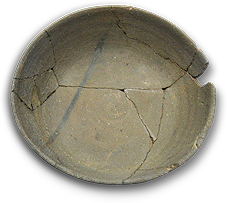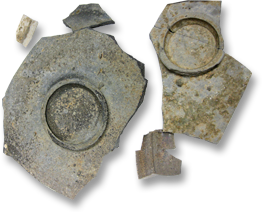
comment
2018-08-20
We apologize that the map (Google Maps) does not work well now. 2018-08-12
The database will be down during Aug 18-21, 2018. 2016-11-14
In Nov. 20-21, We will hold a special session "Geomagnetism and Geoelectricity in connection with Archaeology" in SGEPSS fall meeting in Kyushu University.
We apologize that the map (Google Maps) does not work well now. 2018-08-12
The database will be down during Aug 18-21, 2018. 2016-11-14
In Nov. 20-21, We will hold a special session "Geomagnetism and Geoelectricity in connection with Archaeology" in SGEPSS fall meeting in Kyushu University.

About archeomagnetism...
"Archeomagnetism" is a combination term of "Archeology" and"Paleomagnetism". This is one of a field of academics in which we
research the ancient geomagnetic behaviors using paleomagnetic
ways on the archeological remains.
Was the ancient geomagnetic field different from the current one? Yes!
The geomagnetic field have been continuously changing over long
periods of time. In archeomagnetism, also in paleomagnetism, we investigate
the changing field.
You know, the magnetic compasses do not point the true north direction in Japan (and also in most places of the world).
In present Japanese region, compasses are pointing to the direction westward of 5 to 10 degrees from true north.
This angle from the true north is named "declination", and the declination has been changing over a long time.
About 200 years ago, in the late Edo period, the declination in Japan was almost northward direction.
Moreover, about 400 years ago it was 20 degree eastward and had been westward 1000 years ago.
How is such a thing understood?
It is the contribution of the many results of archeomagnetic studies.
Ancient geomagnetic directions can be revealed by measurements of the magnetized direction, called "fossils of geomagnetism", of the ancient specimens which are sampled from the excavated ruins.
Here is a database compiling the results of Japanese archeomagnetism for the past 50 years.


